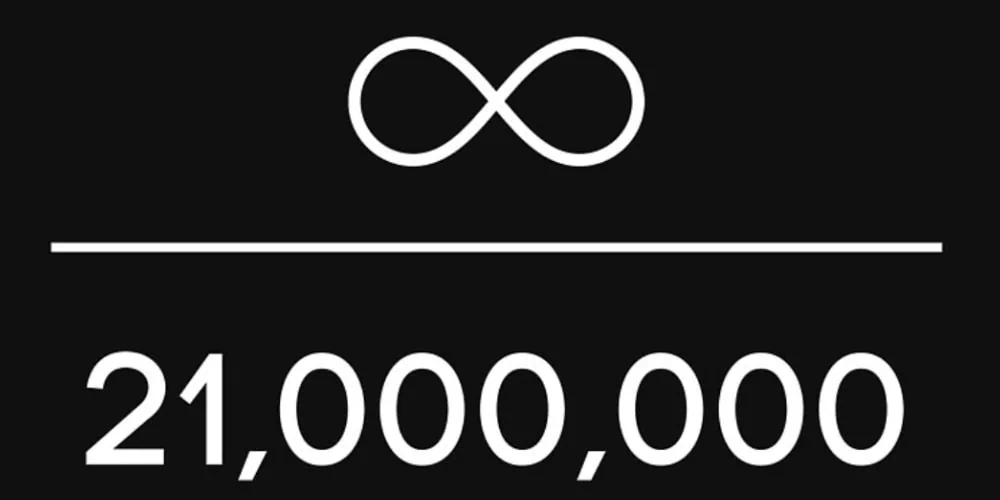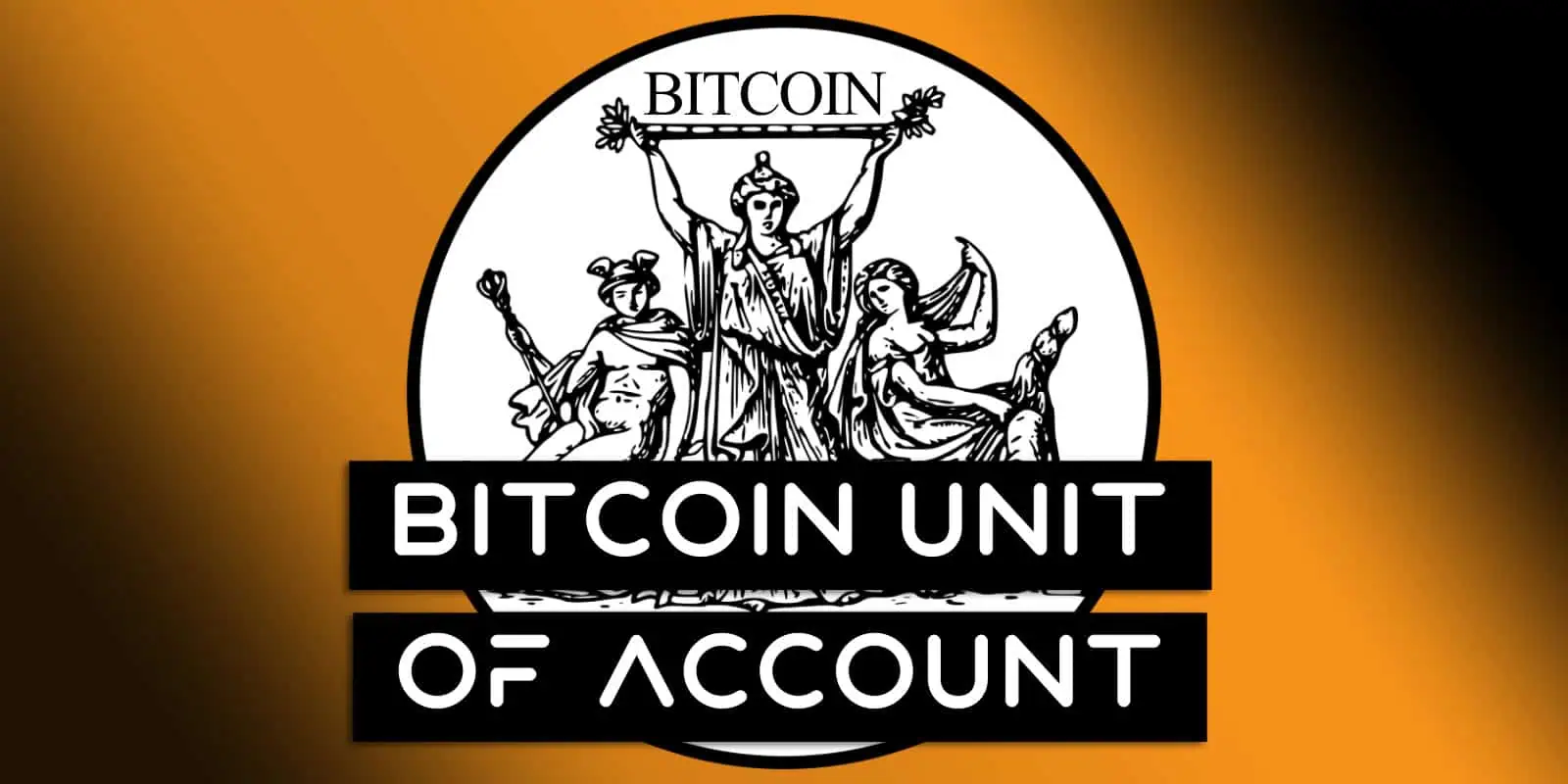Many people say Bitcoin has no real world use to them or anyone else. While we’ve previously debunked that nonsense, we’d like to delve a bit deeper into a particularly interesting use case of Bitcoin that most people never think of: the Bitcoin Unit Of Account.
Contents
Bitcoin Unit Of Account
We’ve covered what Unit Of Account is before and if you haven’t read that piece we’d of course recommend it, but for the lazy:
A unit of account is defined as any standard numerical monetary unit of measurement when valuing a good, service or transaction.
For example, we might measure the value of a cup of coffee to be $5 USD. Here the USD is acting as a unit of account to measure the value of the coffee.
- Item Being Measured: Coffee (a good)
- Measurement Unit: US Dollar
- Value: $5 USD
But let’s go deeper…

Time
Let’s think about Time. Around the world the unit of time is most commonly the second. One second is precisely defined by the International System of Units (IS) and is said to be:
The unperturbed ground state hyperfine transition frequency of the cesium
SI Brochure
133 atom, ∆νCs, is 9 192 631 770 Hz
From the second, we can calculate minutes, hours, days etc. Now while you might have no idea what a “hyperfine transition frequency” is, the Important thing to understand here is that this definition never changes.
Tomorrow 1 second will still equal the same 1 second. A hundred years from now, assuming humanity is still around, 1 second will still be the same 1 second as defined above.
This probably sounds obvious, but everyone in the world all using the exact, never changing definition of time is incredibly useful. Imagine how hard it would be to use a clock, organizing your day or just remember your own birthday if what we used to measure time changed all the time.
Imagine if next week, 1 second actually now all of a sudden equaled 1.02 seconds. Or 1.05 seconds. Or 1.03 seconds.
Now image no one knew what that extra inflated value would be the next week, or the next. How would you meet someone for lunch!?? How would you be on time for your class? For that matter, how would you know how fast you were going in your car as speed = distance / time. If time is changing… then your speed is too! It would be an utter disaster for literally every person on the planet!
Think how much chaos daylight savings time causes, then multiply that by about a million. We have full, perfect knowledge that daylight savings is coming every year and every one still utterly despises it, not to mention all the screw ups that happen due to it!
New to Athena Alpha? Start today!
Length

Let’s now think about Length. As with Time, the world all uses a common unit of length to measure distances. With distances though, we have a few different standards throughout the world, but most are based on the metric system (yes even the imperial system is).
Since the 1950s and 1960s, when the international yard was adopted, an inch has been defined as exactly 25.4 millimeters.
Wikipedia
Again 1 meter is defined by the International System of Units as the length of the path traveled by light in a vacuum during a time interval of 1/299792458 of a second. In one hundred years, 1 meter will still equal the same 1 meter as it does today.
And just like with Time if this were not true, and the length of 1 meter changed every few weeks or months, it would cause utter chaos all around the world. Governments would have to change speed signs every time the definition changed. Your cars spedo would need recalibrating. Maps would get more and more wrong over time. It would waste trillions of dollars of wealth having to update, change and recalculate everything any time the definition was changed.
In fact, the very reason things like the property of a cesium atom or a specific path traveled by light in a vacuum was chosen to define the units of time and length is precisely because it cannot ever change. They’re fundamental laws of the universe regardless of what humans do, say or how the world around us changes gradually over time. They’re fixed. Forever.
Value
Now let’s think about Value. We use money to value things. With our coffee example above we’re saying that this specific coffee is valued at $5 USD, but what does that mean?
With Time and Length we have specific definitions. “The length of the path traveled by light in a vacuum during a time interval of 1/299792458 of a second”. However if we take the USD as an example, the value of that coffee at that point in time is $5 divided by the total amount of money in the system. If there’s $1 million USD in the entire economy at that time then:
Coffee = $5 / $1,000,000 = 0.0005% of the entire money supply
But what happens when the Central bank (the FED) inflates the USD currency by printing money? It and every other central bank does this constantly and on purpose. Say they print another $1,000,000. Now there’s $2,000,000 in the system and the value changes:
Coffee = $5 / $2,000,000 = 0.00025% of the entire money supply
Of course, the coffee shop business isn’t going to stand for this. They’re doing the same amount of work as before, they don’t want to exchange their hard work for 0.00025% of the entire money supply, they want their original 0.00005%! So they double the price of the coffee to $10
Coffee = $10 / $2,000,000 = 0.0005% of the entire money supply
This is what happens when your unit of account changes. Every person, every business, every investor, every family office, every government all has to change their prices or update their work to account for this change.
It’s utter chaos and insanity and we’ve become numb to it because it’s just always been that way. While we have fixed definitions that never change for Time and Length, humanity as a species has had no choice but to embrace and deal with this chaos because we’ve never had a money that has a set, fixed supply.
That is, until 2009 when Satoshi Nakamoto gifted us Bitcoin.
Bitcoin
Bitcoin has a fixed, set supply of 21 million bitcoin or, more accurately, 21 quadrillion Satoshis. The Bitcoin protocol was set to this from day one and it will never change. In one hundred years there will still only be 21 million bitcoin.
It’s a precisely defined amount that for the first time in our species history allows us all to measure the value of things with a constant unit of account. If our coffee costs 0.00005 bitcoin (5,000 sats) today then the value is:
Coffee = 0.00005 / 21,000,000 = 0.0000000002% of the entire Bitcoin money supply
As there will never be more than 21 million bitcoin, this value calculation is the same now and forever into the future. There’s no need for anyone, anywhere to change their prices or calculations just like scientists don’t have to update theirs because the meter and second never change.
Bitcoin’s fixed supply isn’t just great for NgU technology and making people that hold it rich, it’s great because it will save every human on Earth from having to constantly redo everything any time the FED (or any other central bank) decides to print a few trillion.

The denominator we use to measure value has finally, after millennia, been set and defined. It is 21,000,000 and it’s glorious!
Never again will it change and never again will work be wasted having to recalculate everything. This small change is profound. It’s as profound as it was in 1967 when we first were able to define the second based on fundamental properties of nature like the cesium atom.
It’s hard to truly appreciate just how much of an advance this is for humanity, but as the entire world adopts Bitcoin as their unit of account over the coming years we’ll look back on how we used to measure value and think of it as simply arcane. As imprecise and ancient as when we used to not even bother measuring minutes!
It was not practical for timekeepers to consider minutes until the first mechanical clocks that displayed minutes appeared near the end of the 16th century
Wikipedia
An Incredible Use Case
So next time you think that Bitcoin is useless or doesn’t have any use cases, stop and think. Think what it was like for humanity up until 1967 when the second was adopted, or in 1791 when the meter was originally defined.
Bitcoin will allow for more accuracy in economic data, more accuracy in comparing value over time or between things. Our figures and charts, which we use to make important world wide changing decisions, will no longer be shifting like sand during an earthquake.
For individuals there will also no longer be any theft via inflation of the money supply. Your coffee won’t suddenly go from $5 to $10 while your pay remains the same through no fault of your own. Simply saving your money, rather than being forced to invest it and spend half your life trying to beat inflation, will return as a legitimate thing that people can do.
And humanity can once again push forward.



